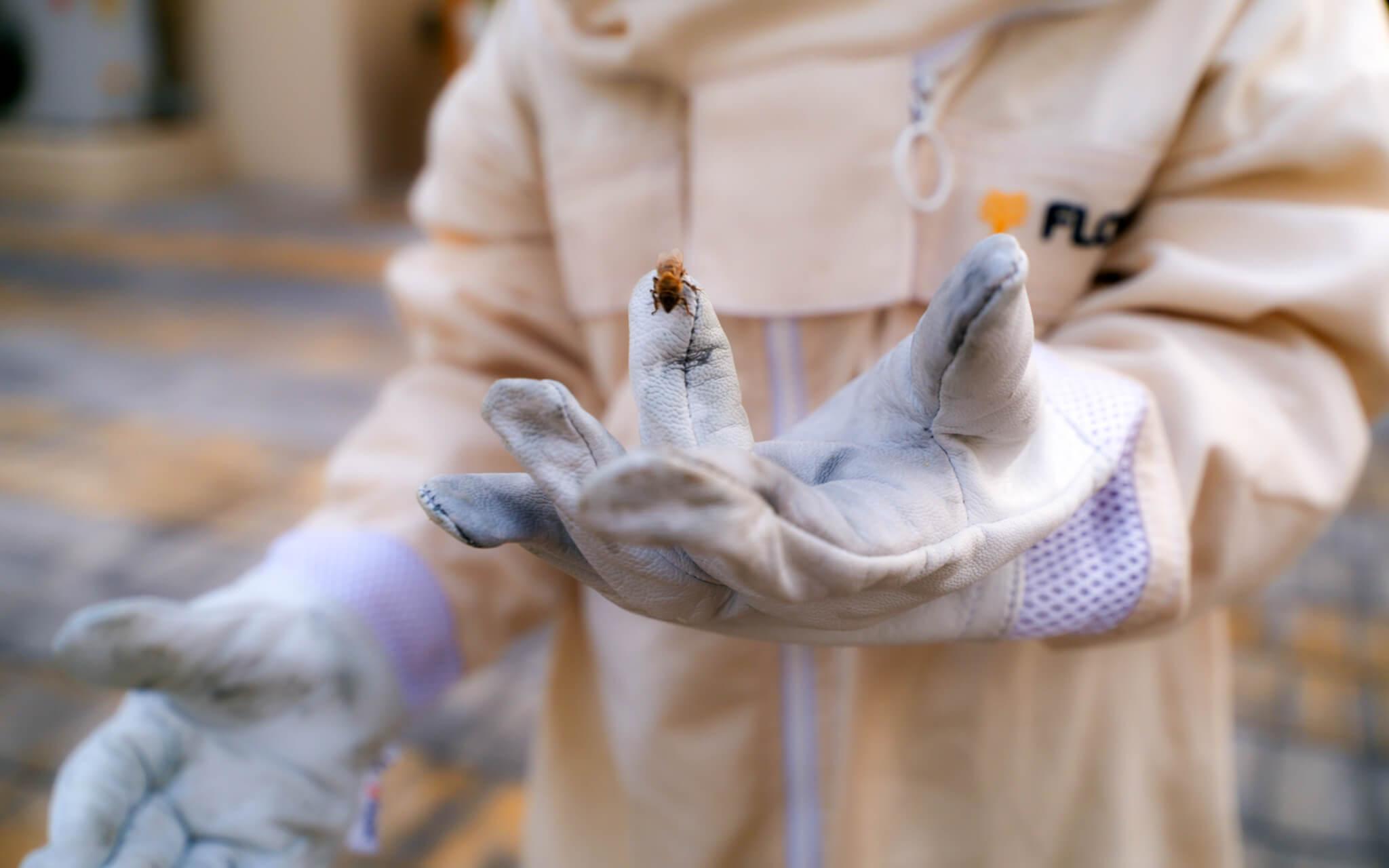Decarbonising the Journey
Intrepid Travel is the world’s largest travel B-corp, hosting tours in over 100 countries. Susanne Etti, Global Environmental Impact Manager for Intrepid, shares how the company’s focus on decarbonisation and climate awareness reduces carbon emissions for travellers and suppliers.
When you reach for the orange juice at the store, a label lists its nutritional value, letting the consumer know whether they’ve made a healthy choice.
When you book a holiday, however, where’s the carbon emissions label telling consumers whether they’ve made an environmentally-friendly choice?
Currently, it’s on the Intrepid Travel website.
Who are they? Intrepid is the world’s largest travel B-corp, committed to running over 1,000 carbon-neutral trips in over 100 countries each year. In September 2023, Intrepid updated its carbon labels on over 500 trips, allowing travellers to access a wealth of carbon data. Want to know the kilogram of carbon emissions per passenger per day for a trip before you book? Well, now you can. Intrepid’s climate impact transparency ensures that travellers don’t have to leave sustainability at home when they take a holiday.
Susanne Etti, Global Environmental Impact Manager for Intrepid, shares how the company’s latest targets take climate awareness one step further – decarbonisation.
And for a business with partners worldwide, encouraging decarbonisation and carbon-neutral practices takes a massive amount of data and planning. “A big part of my role is advocacy because we're all in this together; 98% of our emissions sit in our value chain,” Susanne explains. “The question I ask is, how do we engage others to start their climate journey?”
Growing up in Germany, Susanne spent her childhood skiing and hiking in the Alps, witnessing the shrinking glaciers and changing face of Europe’s highest mountain range. This love for the mountains inspired a degree in Biology, which Susanne dubbed her “ticket to the world,” completing fieldwork in Ecuador and a master’s thesis in Greece. In each location, the damage done by humanity to our environment became evermore apparent: In Ecuador, logging and deforestation, while in Greece, water and air pollution illustrated the need for effective climate solutions.
The question I ask is, how do we engage others to start their climate journey?
This intersection between biodiversity and a healthy climate is one that Susanne believes in highlighting. “We're not just in a climate crisis, but also in a biodiversity crisis,” she says passionately, tying together the unavoidable truth: human actions, whether from travel or development, have a massive impact on the environment, from changing weather patterns to habitat loss. “The amount of animals lost on land and in the ocean in just the last couple of decades is overwhelming. But we also know that nature is an incredible ally because it can help us to draw down carbon; it helps us in adaptation and resilience.”
When catastrophic wildfires overwhelmed Australia in 2019, displacing over 3 billion animals and destroying nearly 3,500 homes, it revealed the devastating effects caused by rising global temperatures. Headquartered in Australia, Intrepid witnessed the fires first-hand and, in 2020, declared a climate emergency, becoming a central launch partner for the Glasgow Climate Pact at COP26.
“The tourism industry has a front-row seat to the climate emergency,” says Susanne. “Every business in the tourism sector has been impacted already by climate change. Look at providers in Europe where it’s sometimes too hot to run trips, or the catastrophic flooding in the Peloponnese and the bushfires in Italy.”
To encourage reduced carbon emissions and more eco-friendly practices, Intrepid relies on a seven-point action plan, utilising scientific research and data analysis. They also run biodiversity conservation and restoration programs, sponsoring indigenous climate advocates in Australia’s outback whose work minimises the possibility of bushfires.
In addition, they monitor and analyse each aspect of their organisation, from corporate headquarters down to local partners, categorising emissions in two ways: office and suppliers.
Every aspect of Intrepid’s employees and their working life falls into the office category, including daily commutes, energy usage, water, and even operational expenditures. “We do a ‘Work from Home’ survey and a commuting survey annually to understand how many days staff work from home or commute. We also ask what electricity they’re using at home. Do they use a monitor? How often is the heater running? General information around their energy use,” Susanne says.
Suppliers, however, are more challenging to quantify, as these are often independent, locally-owned hotels and tour guides. “Even at an operational level, we need to work with our suppliers to give us mission data to start measuring and reducing their emissions. Once we understand where the emissions come from, we can look at transport types, swapping an internal flight with a train, for example.”
But where do we go from here? How do avid travellers continue to experience the world but do so in ways beneficial for host communities and the environment?
One great option is booking more active holidays; Susanne explains, “Walking and cycling have inherently lower carbon emissions, especially if it's a full hiking trip because you only have transport at the start or the end.”
And the good news is many travellers are ready to make positive changes when they travel. "Customers are becoming more conscious, and many tell us, ‘I want to support a locally owned business run by women’ – people are more responsible.”
And as we move toward a future where decarbonisation targets are more important than ever, we’ve all got to prioritise responsible climate action, whether we’re exploring our home city or the world.
Most Popular
The Climate Tribe delivers stories about Biodiversity and Conservation, Circular Economy, Food and Water , and how they intersect with climate.
Subscribe
Get the latest stories inspiring climate action around the globe straight to your inbox.






